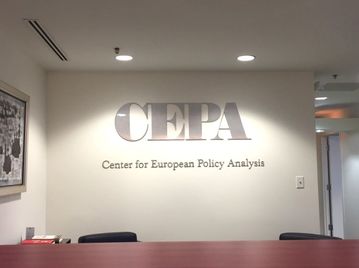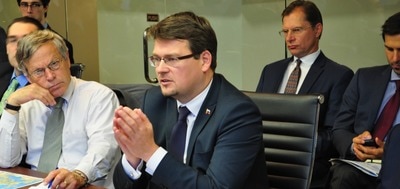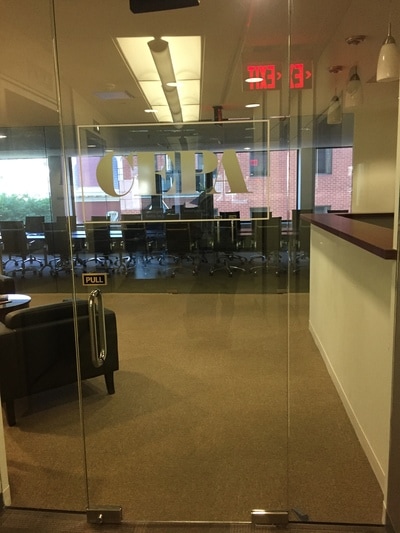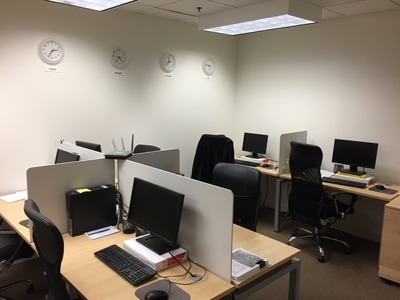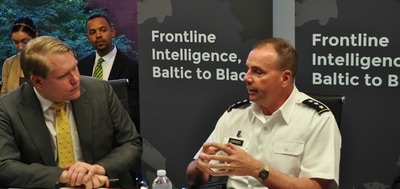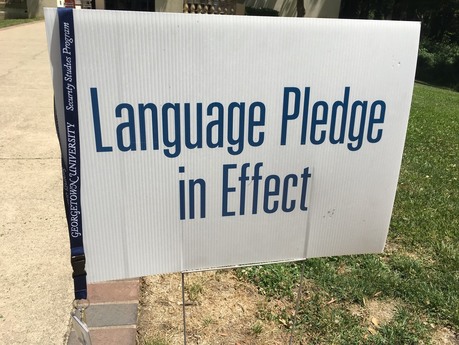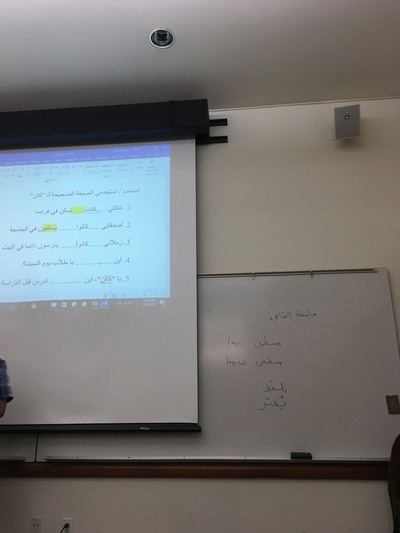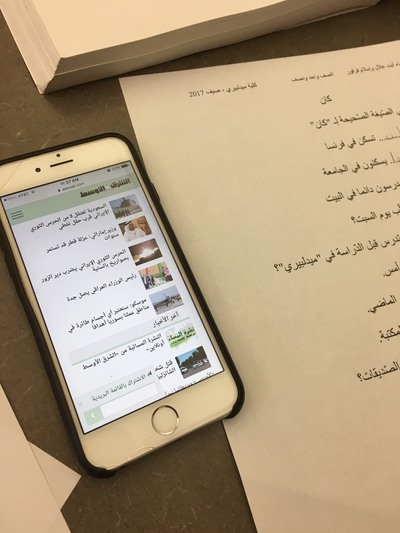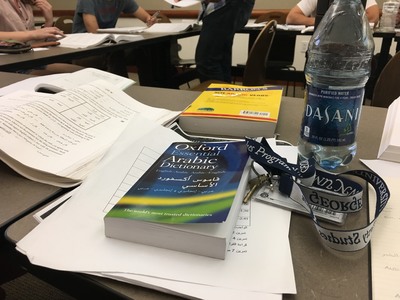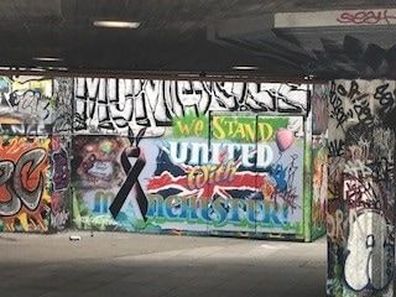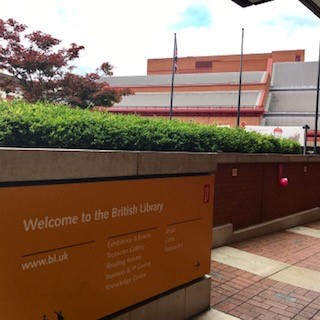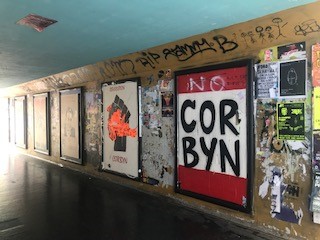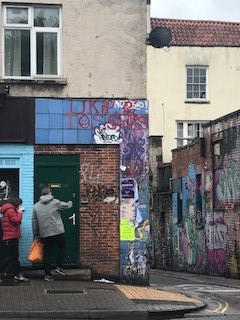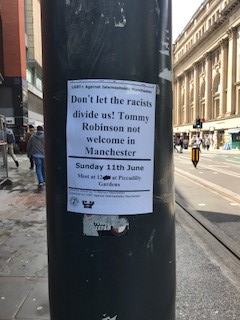By Townshend Cooper
I began my internship with the Center for European Policy Analysis in early June, where I’ve been doing research on countering disinformation and focusing on Eastern Europe with a group of six other interns. So far I’ve attended a panel held by top military commanders, written weekly updates on the upcoming ZAPAD 2017 military exercise in Russia, assisted scholars in their regional research, and worked on programs designed to track fake news. I have also been following foreign media and written reports on spotted propaganda. It has been extremely gratifying to be doing the work that I have, and I look forward to the time that I have left.
How does your internship sponsor contribute to the mission of national security?
CEPA is exclusively focused on Eastern-European affairs and issues. Despite its young age -founded only in 2005 - CEPA has published numerous reports, findings and briefs on issues ranging from disinformation warfare, regional stability and military updates. On one of my first days, CEPA held an off-the-record information session with Lieutenant General Ben Hodges, Commander of the U.S. forces stationed in Europe, to an audience of military personnel, State Department representatives and so on. They are extremely committed to promoting understanding and dispelling “fake news”, and I had the opportunity to work on a project researching methods of quickly tracking and stopping the insemination of such propaganda. All of our experts are highly regarded, and have even presented before the Foreign Affairs committee.
What are two interesting things about CEPA that the average person doesn’t know?
First off, I had no idea how small CEPA actually was. I knew that it wasn’t one of the bigger organizations, but the core number of staff is somewhere around only fifteen people, with more than half being from Eastern Europe. In fact, CEPA’s entire D.C. headquarters don’t even take up a full floor. That only goes to show just how hard everyone here works!
Going off of that, I wasn’t aware of how many people from Eastern Europe CEPA has employed – as a matter of fact, on my second week a Hungarian expert in the U.S. on fellowship arrived. It’s not only the full time staff either – my fellow interns are from Italy, Romania, Lithuania and Britain. It makes for some very interesting conversations, although I couldn’t help but feel ganged-up upon when the subject of the metric system was brought up. But in all seriousness, everyone working here, from those like myself employed only temporarily to the President, is fascinated with the work we do and the research we conduct. Having as much diversity as CEPA does in its workforce only improves the quality of the products we put out.
What is the biggest lesson you’ve learned from this experience?
I guess the old adage “the more you know, the more you know you don’t know” really applies here. I’m learning a lot every day, from how thinktanks like CEPA run their organizations to how Poland and the Baltic States are stepping up their efforts to combat cyber aggression. But on the other hand, while working I’ll realize just how small my knowledge of a particular subject is. Every day I’ll come in, open my email and be excited to get started on a task or assignment a researcher needs help with, or a fellow intern wants to move on, so in this sense, I’ve learned that these projects are really a team effort. On a few occasions the president himself has come to me and asked for some help with his work.
But when it comes to the singular most fascinating thing that I’ve learned thus far at CEPA, it has to be this overwhelming sense of just how unprepared the U.S. seems to be to wage an information war. Everything I’ve read, all of the reports put out by CEPA, all indicate that we have not yet done enough to face what appears to be an impending threat. There needs to be more work done on successfully countering, both in the short term and the long run, disinformation and its detrimental effects.
How does your internship sponsor contribute to the mission of national security?
CEPA is exclusively focused on Eastern-European affairs and issues. Despite its young age -founded only in 2005 - CEPA has published numerous reports, findings and briefs on issues ranging from disinformation warfare, regional stability and military updates. On one of my first days, CEPA held an off-the-record information session with Lieutenant General Ben Hodges, Commander of the U.S. forces stationed in Europe, to an audience of military personnel, State Department representatives and so on. They are extremely committed to promoting understanding and dispelling “fake news”, and I had the opportunity to work on a project researching methods of quickly tracking and stopping the insemination of such propaganda. All of our experts are highly regarded, and have even presented before the Foreign Affairs committee.
What are two interesting things about CEPA that the average person doesn’t know?
First off, I had no idea how small CEPA actually was. I knew that it wasn’t one of the bigger organizations, but the core number of staff is somewhere around only fifteen people, with more than half being from Eastern Europe. In fact, CEPA’s entire D.C. headquarters don’t even take up a full floor. That only goes to show just how hard everyone here works!
Going off of that, I wasn’t aware of how many people from Eastern Europe CEPA has employed – as a matter of fact, on my second week a Hungarian expert in the U.S. on fellowship arrived. It’s not only the full time staff either – my fellow interns are from Italy, Romania, Lithuania and Britain. It makes for some very interesting conversations, although I couldn’t help but feel ganged-up upon when the subject of the metric system was brought up. But in all seriousness, everyone working here, from those like myself employed only temporarily to the President, is fascinated with the work we do and the research we conduct. Having as much diversity as CEPA does in its workforce only improves the quality of the products we put out.
What is the biggest lesson you’ve learned from this experience?
I guess the old adage “the more you know, the more you know you don’t know” really applies here. I’m learning a lot every day, from how thinktanks like CEPA run their organizations to how Poland and the Baltic States are stepping up their efforts to combat cyber aggression. But on the other hand, while working I’ll realize just how small my knowledge of a particular subject is. Every day I’ll come in, open my email and be excited to get started on a task or assignment a researcher needs help with, or a fellow intern wants to move on, so in this sense, I’ve learned that these projects are really a team effort. On a few occasions the president himself has come to me and asked for some help with his work.
But when it comes to the singular most fascinating thing that I’ve learned thus far at CEPA, it has to be this overwhelming sense of just how unprepared the U.S. seems to be to wage an information war. Everything I’ve read, all of the reports put out by CEPA, all indicate that we have not yet done enough to face what appears to be an impending threat. There needs to be more work done on successfully countering, both in the short term and the long run, disinformation and its detrimental effects.
